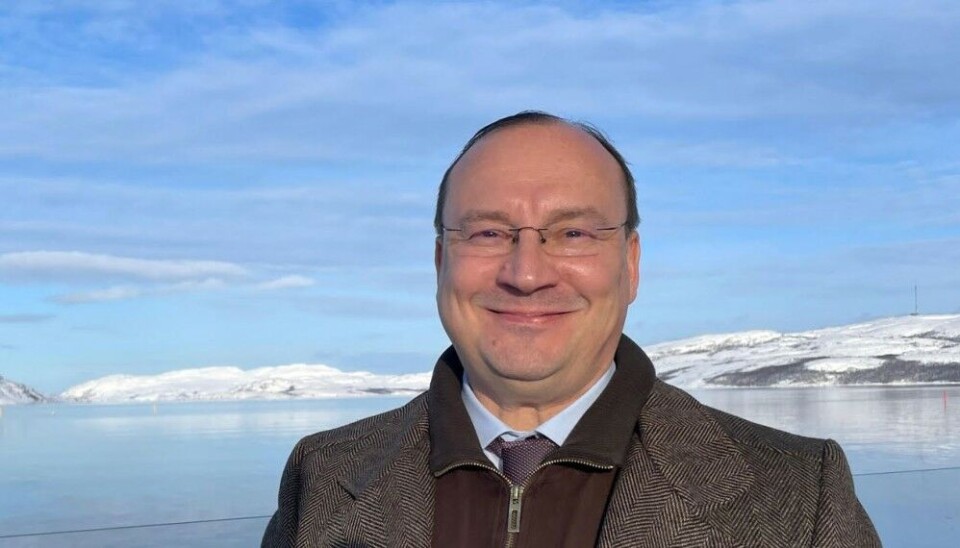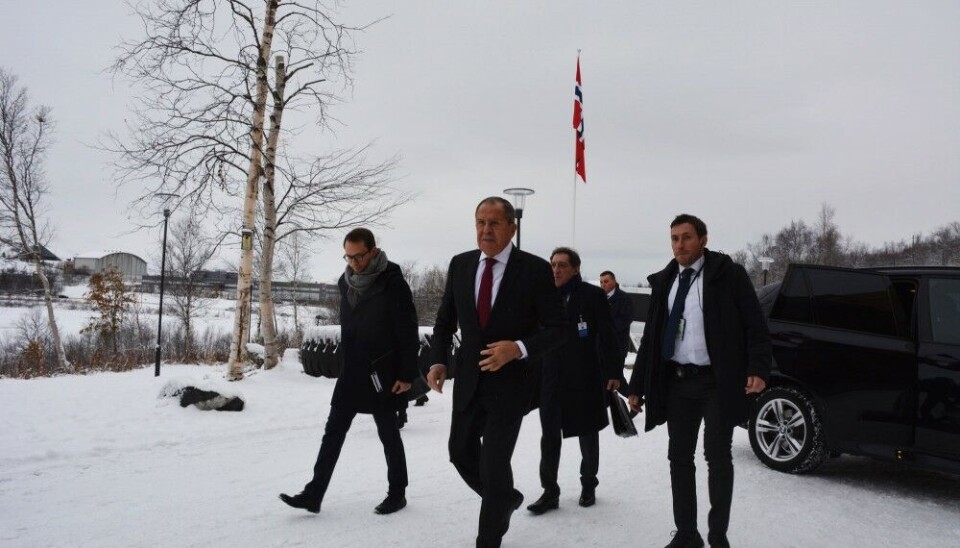
"Barents and Arctic cooperation can continue without Russia"
Finland's Barents Ambassador Jari Vilén is confident that international cooperation in the far northern region must persist on a Nordic platform. "There can be no cooperation without trust," he underlines.
“The Russians were dissatisfied and displeased, to put it that way.”
Jari Vilén is the top diplomat that leads Finland’s presidency in the Barents Council, the body that normally includes the Nordic countries and Russia. Few days after Russia’s invasion of Ukraine, he called the Russian Foreign Ministry and announced that Russia was dismissed from the club.
It was a question of trust, Vilén explains. “Cooperation is based on values and on trust. And there is no trust today.”
The announcement outraged Moscow. “In their narrative, there is no meaning with this cooperation if they are not part of it,” Vilén explains.
But the Finnish diplomat and his Nordic colleagues see it differently. They now continue cooperation within the same structures, but without the Russians.
“Immediately after the start of the war and the suspension of Russia, we decided that we would keep the structures that have been built over the last 30 years. Hopefully, they can survive and be utilized in the years, even decades, ahead,” Vilén says to the Barents Observer.
According to the diplomat, the Barents Council has since its establishment in 1993 had major success in fields like environmental protection and healthcare and these areas can be key priorities also in the new regional cooperation without Russia.

Jari Vilén has served as Finnish ambassador to both Hungary and Poland, as well as the Council of Europe, before he in March 2020 took on the position as Finland’s ambassador to Barents and the Northern Dimension.
Last week, he participated in the Kirkenes Conference, an annual event that normally includes a number of Russian business representatives, state officials and regional governors. This year, they were all gone and replaced by bigger Nordic delegations.
Only few days before the start of the conference, the Russian government announced amendments in its Arctic Strategy document. In the updated version there is no longer any mention of the Barents Cooperation, nor the Arctic Council.
“It is a quite logical continuation of today’s Russian policy,” Vilén says. “They are clearly disengaging from the international structures and international organisations,” he explains and refers to Moscow’s recent decision to leave the Council of Baltic Sea States, as well as the Council of Europe and the European Convention of the Human Rights.
However, the diplomat is not sure whether Russia will actually fully withdraw from the international structures. After all, Moscow has many times highlighted the importance of bodies like the Arctic Council, and they are themselves today the chair of the structure.
In May this year, Russia is due to hand over the rotating presidency of the Arctic Council to Norway. The shift of chair country will be closely followed by the stakeholders in the Barents Council, where Russia is due to take over the chair in October.
“We still do not have the solution for how to deal with that,” Vilén admits. He is confident, however, that there is no way that Moscow can lead the Barents Council any time soon.
Many people in the Nordic foreign ministries hope the situation some day will allow Russia to return to the international stage, and Vilén believes environmental cooperation can serve as a platform for the country’s re-engagement.
When the Soviet Union in the late 1980s and early 1990s opened up to the world, environment was a driving force in cooperation. That could happen again.
“In a way, the circle comes back. Environmental protection will definitely again be one of the areas where we can find a common interest,” says Vilén.
But there is a long way to go. Among the recent amendments in Russia’s Arctic Strategy is also a downplay of Arctic environmental protection. While the former version of the document highlighted the need for “compliance with high environmental standards,” the updated document rather talks about environmental protection and efficient development of natural resources “in the interest of a sustainable development of the Arctic.”















